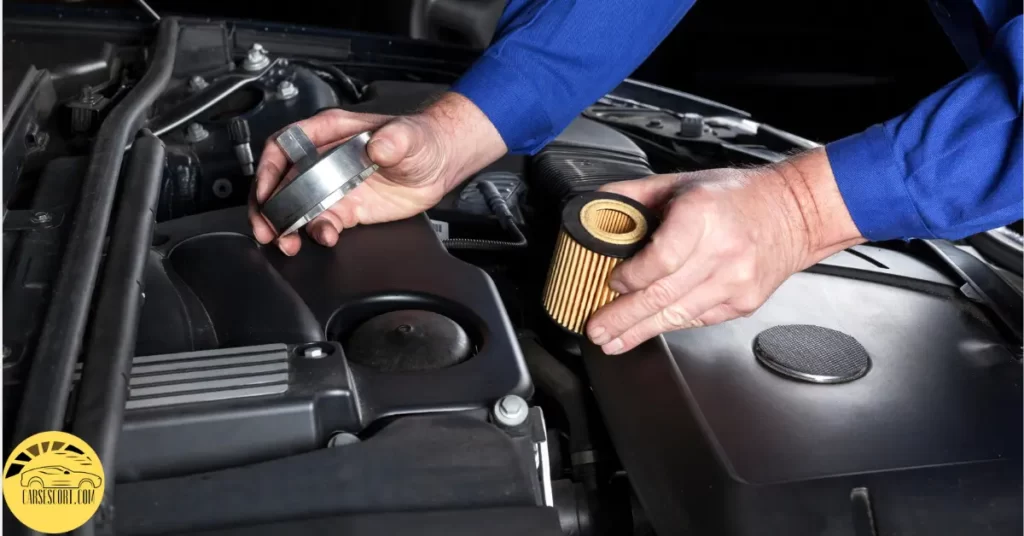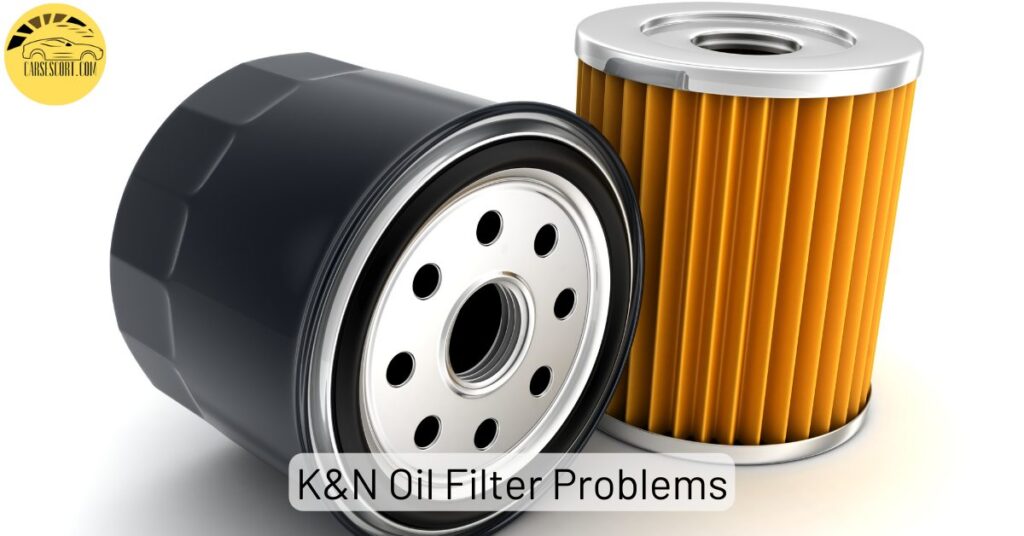K&N, a renowned brand revered for its high-quality air filters, has also ventured into the realm of oil filtration. However, as with any product, even the most trusted brands may encounter their fair share of challenges.
One of the primary concerns with the K&N oil filter is the potential risk of leakage, which could lead to oil coming into contact with the rear wheel and brake, potentially resulting in a loss of control.
K&N has identified a specific issue with their KN-204 oil filters produced between March 1, 2016, and September 30, 2016. In these filters, there is a possibility of oil leakage occurring when a nut intended for easy removal of the oil filter during routine oil changes is welded to the bottom of the filter canister.
Note: The manufacturer of K&N oil filters claims to address various issues, and many customers have reported satisfactory experiences without encountering any problems.
The objective of this article is not to undermine anyone’s authority but rather to enlighten our audience about potential concerns.
Common K&N Oil Filter Problems
1) K&N Oil Filter Leakages
One of the common problems with K&N oil filters is oil leakages that can occur due to various reasons, such as the built-in filter fault, improper installation, worn-out gaskets, or damaged filter housing.
Leaking oil can occur when the filter is not installed correctly or the gasket is not properly seated.
If the filter housing is cracked or damaged, it may also result in oil leakage. Oil leakages can lead to decreased oil pressure, engine damage, and potential safety hazards if oil comes into contact with hot engine components.
2) Cracks in the Oil Filter Housing
Another issue with K and N oil filters is cracking in the oil filter housing. The filter housing is designed to hold the filter element and prevent oil leaks securely.
However, if the housing is subjected to excessive stress, impact, or poor manufacturing quality, it can develop cracks. Cracks in the oil filter housing can lead to oil leaks and compromise the overall functionality of the filter.
3) Filter Failure
Filter failure is a significant concern regarding oil filters, including K&N filters. Filter failure can occur for various reasons, such as a clogged filter element, improper filter media, or a defective bypass valve.
If the filter element becomes clogged with debris and contaminants, it may restrict the oil flow, reducing lubrication and potential engine damage.
If the filter media is ineffective at trapping contaminants, harmful particles can bypass the filter and circulate in the engine. A faulty bypass valve can also cause filter failure by allowing unfiltered oil to bypass the filter.
4) Heavy Exhaust Fumes
Experiencing heavy exhaust fumes can be a symptom of an oil filter problem. If the oil filter fails to effectively remove contaminants and impurities from the oil, these particles can enter the engine’s combustion chamber.
As a result, the contaminants can burn along with the fuel, producing heavy exhaust fumes. This can negatively impact the engine’s performance, fuel efficiency, and emission levels.
5) Durability Concerns
Durability concerns can arise with K&N oil filters, just like any other oil filter brand. While K&N is known for its high-quality products, there can still be instances where durability becomes a problem.
Factors such as poor maintenance, harsh operating conditions, or manufacturing defects can impact the overall durability of the filter. If the filter’s construction or materials are not robust enough, it may fail prematurely, leading to potential engine damage or oil-related issues.
What is K&N Filter Recall?
K&N, a renowned automotive parts manufacturer, has issued an important recall notice concerning their KN-204 motorcycle oil filters. The company has identified a potential leakage risk in a specific batch of filters produced between March 1, 2016, and September 30, 2016.
This issue, if left unaddressed, could lead to oil coming into contact with the rear wheel and brake, posing a significant loss of control hazard for riders.
To ensure the safety of their customers, K&N has taken swift action and is offering a complimentary replacement for all affected filters.
Owners are urged to check the manufacturing date code on their filters to determine if they fall within the recall range. The affected units can be identified by the second and third characters of the manufacturing date code, which will display the following number/letter combinations: 3H, 4H, 5H, 6H, 7H, 8H, or 9H. These codes are imprinted on the ends of the filters for easy identification.
In an official statement posted on their website, K&N explains that the potential leak originates from welding a nut at the bottom of the filter canister, intended for the convenience of removing the filter during routine oil changes.
However, certain KN-204 filters within the specified time frame may experience oil seepage from this area.
Ensuring customer safety and satisfaction remains K&N’s top priority. They apologize for any inconvenience caused and are committed to rectifying the issue promptly.
Owners of affected filters are encouraged to take advantage of the free replacement offer to eliminate any potential risks associated with the identified leakage problem.
Read More About Cars Care:
How Do I know If My Oil Filter Is Wrong?
You can identify if your oil filter is wrong by observing certain signs. Firstly, if the filter does not fit properly or is loose, it may indicate your vehicle’s wrong size or type.
If you notice leaks or oil seepage around the filter, it could imply a poor seal or mismatched filter. Another indicator is if the filter looks significantly different from the one you previously used or doesn’t match the specifications recommended by your vehicle manufacturer.
It’s essential to consult your vehicle’s manual or seek professional advice if you suspect an issue with your oil filter.

FAQ
How long can a K&N oil filter last?
K&N oil filters last up to 10,000 miles or more, following the manufacturer’s guidelines and replacing the filter at the recommended service interval or as specified in your vehicle’s manual is recommended.
The lifespan of a K&N oil filter can vary depending on several factors, such as the driving conditions, the type of engine oil used, and the maintenance practices.
Generally, K and N oil filters are designed to have a longer service life than conventional filters. They are built with high-quality materials and advanced filtration technology, allowing them to be used for extended intervals.
Are K&N Oil Filters Good With Synthetic Oil?
Yes, K&N oil filters are compatible with synthetic oil. Synthetic oil is known for its superior performance and extended service intervals, and K&N oil filters are designed to work effectively with conventional and synthetic oils.
K and N oil filters are engineered to provide excellent filtration and protect your engine from contaminants regardless of the type of oil used.
When using synthetic oil, selecting an oil filter that meets the specifications recommended by your vehicle manufacturer and matches the thread size and sealing requirements is important.
Can the wrong oil filter cause engine damage?
Yes, using the wrong oil filter can potentially cause engine damage. The oil filter is crucial in keeping the engine oil clean and contaminant-free.
If you use a filter incompatible with your vehicle or do not meet the specifications, it may not effectively filter the oil or maintain the required oil pressure.
Affiliate Disclosure: Cars Escort is a participant in the Amazon Services LLC Associates Program. As an Amazon Associate, we earn from qualifying purchases made through affiliate links on our site. Read Our Disclaimer .

